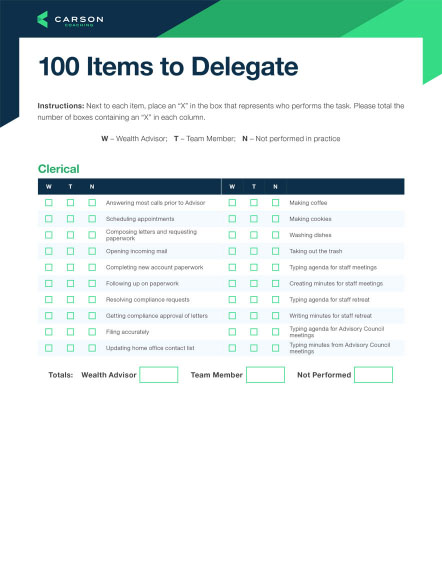The pandemic forced people to figure out what they wanted in their lives. Perhaps they got laid off, or perhaps they decided their job wasn’t for them.
This is in line with a recent article in The Wall Street Journal that reported people are quitting their jobs at record rates to pursue careers more in line with their passions and skills. This makes the job market incredibly competitive – and, in turn, might make it difficult for you to find and onboard great talent.
Many factors (e.g., pay, benefits, career path, culture, desire and willingness to be adaptable, etc.) help you attract the best candidates to your firm and retain the ones you have now. One of the most important factors to focus on is culture.
Culture is the foundation nearly everyone wants, but it often feels too vague to define and build with ease. One part of culture is connecting with and understanding your team’s skills, motivations and strengths. And a popular and effective method to do this is to use assessments.
My first meaningful experience with an assessment was almost 10 years ago, when I took the Kolbe A™ Index. As I sat down with an internal employee to review my results, I felt seen and validated in a way I’d never experienced. I started to appreciate my strengths of developing processes, bringing order and starting projects by analyzing versus experimenting.
I embraced that I’m just naturally wired for order and closure, versus spontaneity and uncertainty. What I once viewed as shortfalls I now view as strengths. This reframe of thought expanded to include my colleagues. I realized their various strengths offered diversity in thinking and action different from my own, lending itself to a productive team.
This initial experience was only the beginning of my interest in assessments. I became certified in Kolbe and have since shared its benefits with hundreds of professionals. I benefited from Kolbe as an individual and as a coach. I’ve continued to expand my knowledge of assessments while earning my graduate certificate in executive and professional coaching. I’m well-versed in how assessments can build teams and culture.
Advisors I work with often ask me when, why and which assessments they should use. Aside from Kolbe, there are many other great tools available. The right one for you depends on what you’re looking for. Assessments are an investment in your team and culture, and range anywhere from “free” to a few hundred dollars per assessment. Here’s your startup guide to help you find what fits your team’s needs.
‘What type of assessment should I use?’
First, decide what you are looking to solve or improve. Different assessment types focus on different areas and glean different insights. Some common types include:
- Job knowledge – can tell you whether a candidate has the job-specific skills you are looking for, such as how to put together a case study for a client.
- Skills assessments – assesses skills, such as how many words per minute a person can type.
- Cognitive – tells you a candidate’s or team member’s mental capacity to measure logic and reasoning.
- Instincts/actions – gives you insight into how someone will take action in certain situations.
- Personality – gives you a glimpse into a person’s working style, traits and attitudes.
- Emotional intelligence – offers an understanding of how a person manages emotions and relationships.
‘Should I use an assessment tool in the pre- or post-hiring process?’
Not all assessments are created or validated equally. Pre-employment screening assessments need to be complementary and rely on research, validation and reliability. Using job, skill and cognitive assessments in the hiring process is a good start.
If you want a relatable assessment to use in the hiring selection process, consider Kolbe RightFit™, PXT Select™ and The Predictive Index. By implementing an assessment, employers are more thoughtful about defining the job roles and specific skills needed to do the job well. Using these assessments helps you focus on the strengths of the person as they relate to the job. Assessments help remove the personal biases we all carry. In general, you create a specific picture of what success looks like in the job, and become better equipped to determine if the candidates might have those traits as their natural tendencies.
Be sure to do your due diligence when deciding whether you’ll use the assessment in the pre- or post-hiring process.
Webinar: Developing a Fool-Proof Hiring Process for Your Firm
‘What should I do with the results?’
Simply taking an assessment will not have an impact unless you create the opportunity to have meaningful dialogue. In fact, sometimes taking an assessment and doing nothing with that information may even have a negative impact on the team or culture.
If you are new to assessments, I highly encourage you to work with a certified consultant who can help you build a meaningful experience for you and your team.
‘What are some tips for making the best hire?’
The first part of making the best hire is to know what you need to fill this specific role and create a detailed description. After that:
- Use job, skills and cognitive assessments as needed.
- Adopt a pre-hire assessment and continue to use that information to build communication and cooperation, and to find out if you’ll be able to appropriately delegate.
- Work with someone (like your coach) to develop your hiring process.
- Hire slowly and hire for where you want your business to be in five years.
Any good coach will tell you: It’s not that you need to be the expert in hiring, it’s that you need to be willing to seek expert guidance to create your process. Adding assessments to that process can help you build the right culture and team.


